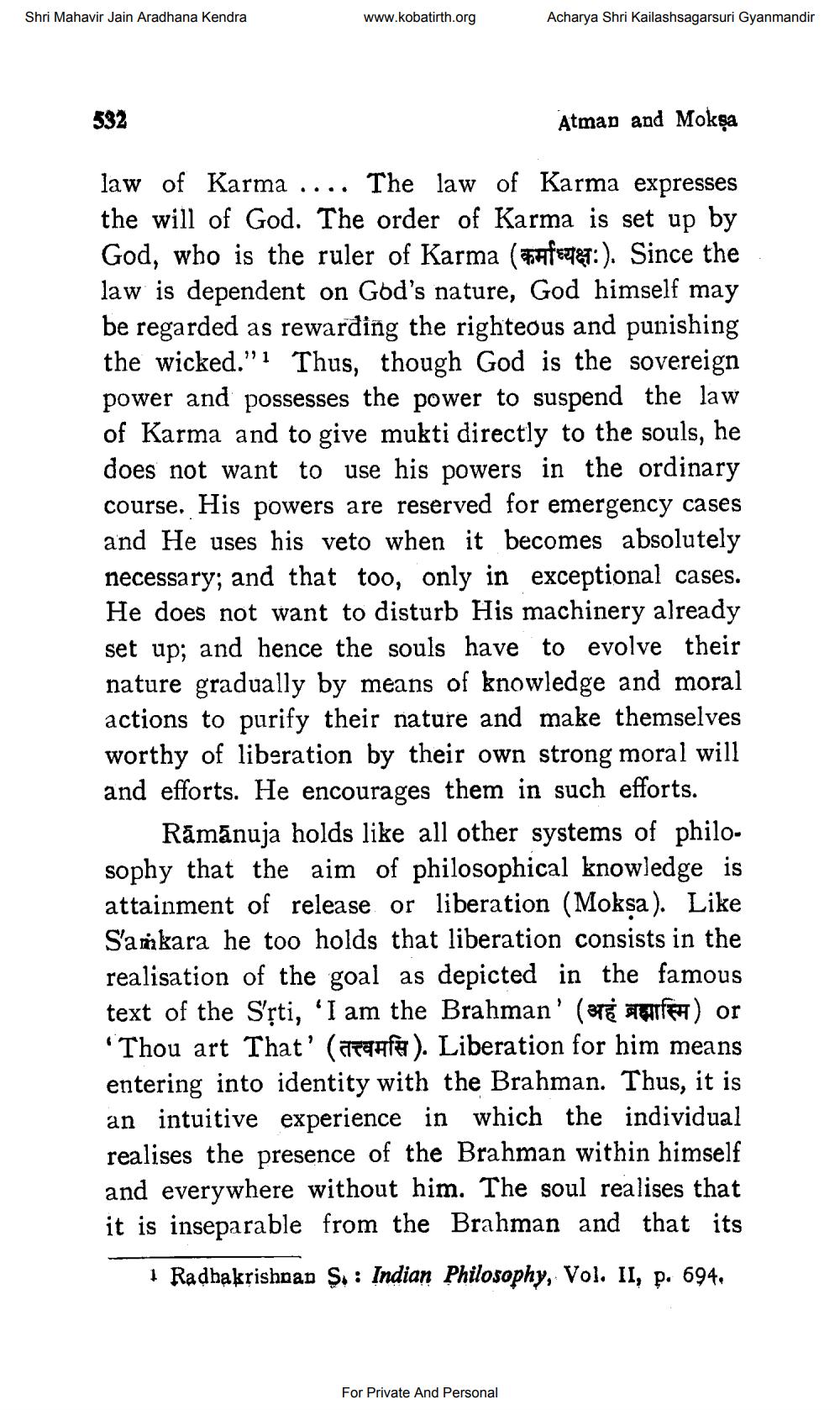________________
Shri Mahavir Jain Aradhana Kendra
www.kobatirth.org
Acharya Shri Kailashsagarsuri Gyanmandir
532
Atmap and Mokşa
law of Karma .... The law of Karma expresses the will of God. The order of Karma is set up by God, who is the ruler of Karma (Fiftet:). Since the law is dependent on God's nature, God himself may be regarded as rewarding the righteous and punishing the wicked."! Thus, though God is the sovereign power and possesses the power to suspend the law of Karma and to give mukti directly to the souls, he does not want to use his powers in the ordinary course. His powers are reserved for emergency cases and He uses his veto when it becomes absolutely necessary; and that too, only in exceptional cases. He does not want to disturb His machinery already set up; and hence the souls have to evolve their nature gradually by means of knowledge and moral actions to purify their nature and make themselves worthy of liberation by their own strong moral will and efforts. He encourages them in such efforts.
Rāmānuja holds like all other systems of philosophy that the aim of philosophical knowledge is attainment of release or liberation (Moksa). Like Sankara he too holds that liberation consists in the realisation of the goal as depicted in the famous text of the S'ști, 'I am the Brahman' (BE MUTF) or 'Thou art That' (acquer). Liberation for him means entering into identity with the Brahman. Thus, it is an intuitive experience in which the individual realises the presence of the Brahman within himself and everywhere without him. The soul realises that it is inseparable from the Brahman and that its
Radhakrishnan Ş. : Indian Philosophy, Vol. II, p. 694,
For Private And Personal




